"We have always done it. It is cleaner and less hassle."
The truth is, docking tails of sheep or dogs, both common practices, have large effects on the animals. Docking hurts, no matter how it is done. The tail is banded with a strong elastic and must be done in the first week of life or is inhumane. I have put that elastic on the babies and watched them run, jump, cry, sit, stand, basically do anything to stop the hurting. I have castrated newborn lambs and goats the same way and again witnessed that basic behaviour to quit the pain. I cannot imagine how it must feel. And yes, in a day or sometimes only hours, it hurts less and the lamb may appear normal, but if you closely observe, there is still a tendency to find a way to get the pain gone. Eventually the banded tail or scrotum falls off due to loss of blood supply. Eventually? Yes. It takes days or sometimes a week. Ouch!
Many shepherds will tell me that they dock tails because it is cleaner and the risk of fly strike is much less. I have long wooled sheep with tails to the ground, sheep dragging their tails behind them, so to speak, and they have the cleanest britches in the flock. I have a Romney ewe with no tail at all, docked way too short exposing her vulva and rectum to biting insects, the sun, and all other elements, only she has copious amounts of fleece. The heavy wool eventually covers her butt and then the real problem starts. She soils her wool every time she defecates or urinates. It runs down her legs and causes urine scald if left there. She is the most prone to fly strike since she is always covered in feces and that is what attracts the blowfly, a fly that lays eggs in the manure tags, but whose larvae feed on the flesh of the sheep. If she had kept her tail, she would have been able to lift it when needing to. The sheep with long tails do not suffer this same problem. They lift their tails and there is little to no soiling of the rectal area. There is evidence that tails that are too short change cell behaviour and allow cancer to take hold and that ewes with short tails simply do not have the muscle tone to keep the babies in.
I was hunting for some sort of evidence via the form or a study about tail docking and finally found what I was looking for. Tail docking, especially too short, which can cause rectal prolapse. Wouldn't you know it, feeding sheep grain causes sticky stools, which are the worst for the back end. Sheep have more than one stomach to digest cellulose from grass and weeds. Grain causes many more problems than it helps, except the quick fattening aspect to get dollars to the wallet. So, eliminating grain is one place to start managing long tails.
This excerpt cites two studies that support leaving tails long: Other researchers found that the complete removal of the tail actually increased the incidence fly strike compared with lambs that were docked but had some tail remaining (Watts and Marchant 1977; Watts and Luff 1978). This mirrors earlier work from Australia, as reviewed in Fisher et al (2004), which reports that up to 55–60% of no-tail and short docked sheep showed signs of fly strike, compared to up to 32% of medium tail docked sheep. The same review reports that cancer of the perineal region – usually the vulva – and tail infection were far higher in short tail docked sheep and almost nonexistent in medium or long docked sheep. It is thought that the ability of a lamb to shake its (undocked) tail can help minimize fly strike by deterring flies from landing, while also helping to spread and scatter its feces. (http://www.fao.org/fileadmin/user_upload/animalwelfare/TAFS-2-Management-to-Avoid-Tail-Docking-Sheep-9-22-09.pdf)
The Fat Ewe Farm neither docks tails nor castrates male babies. Both practices need to be studied and reviewed. There are short tailed breeds of sheep with rat tails that evolved naturally. Cross breeding with these sheep often brings a short tail to the crossbred babies. That might be an answer for those who must have short tails. Keeping the back end clean is necessary for any sheep or goats though. Even the best husbandry practices may result in the occasional bout of diarrhea which will adhere to fleece. Heavy fleeced animals will have that problem despite have short or no tails, though and need to be monitored during fly season.
The only true benefit is for the shearer. I want to please my shearer so he will return the next year, but not at the cost of causing pain to the animals. I hope you understand. I value the shearer so much. Getting a shearer here in the north is not that easy so when one is willing and able to come, keeping him happy is paramount. But, still, I am not going to dock tails on my babies. Nature intended them to have those tails and they are keeping them.

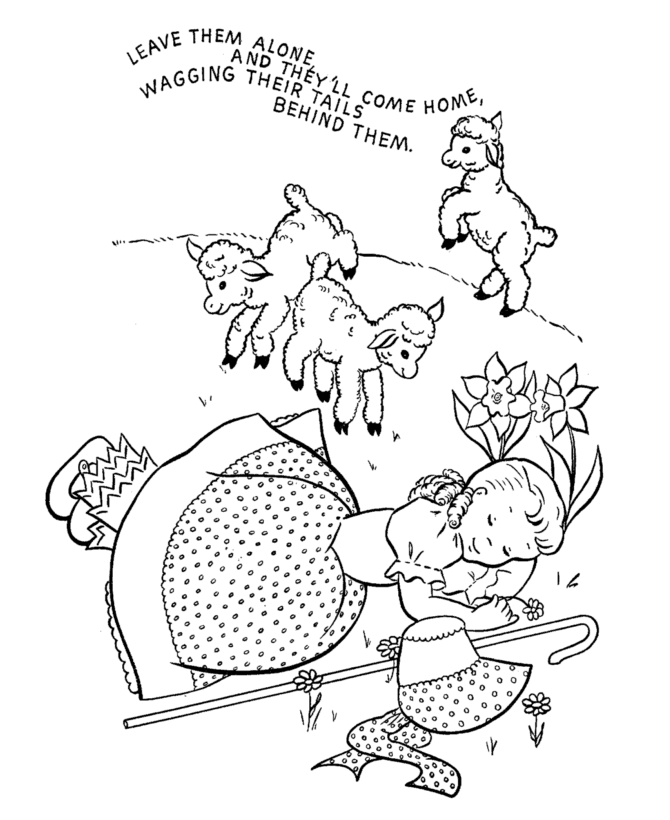
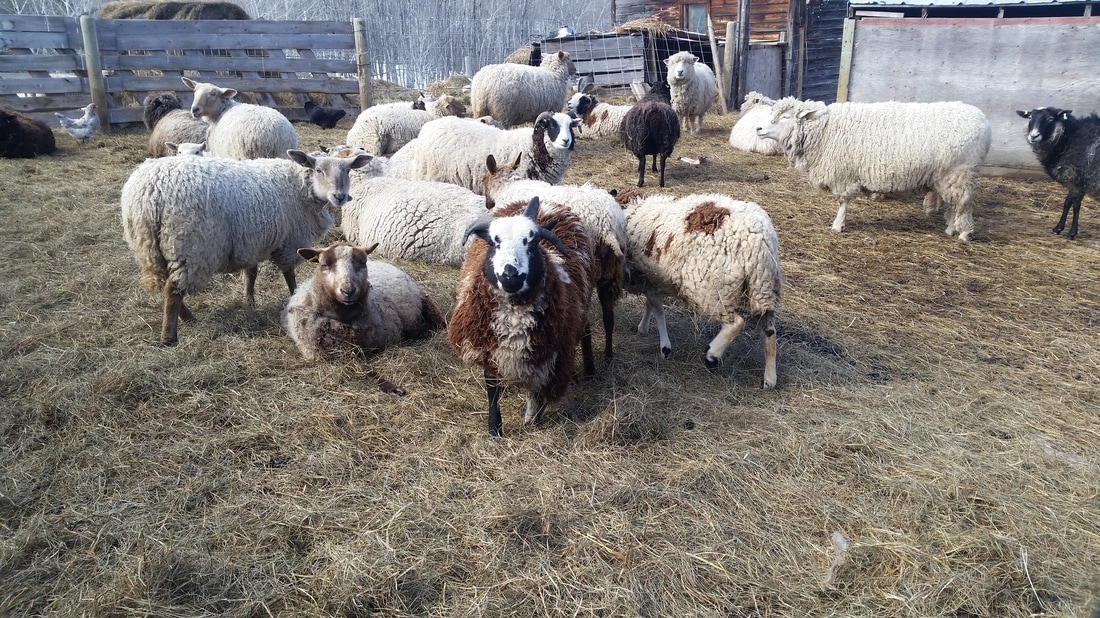
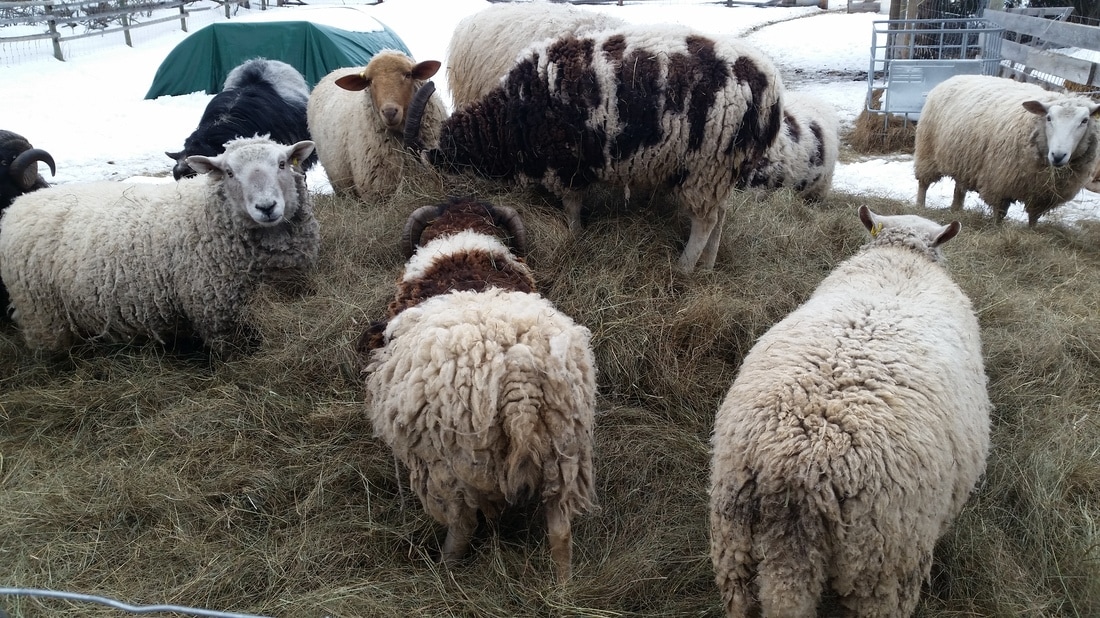
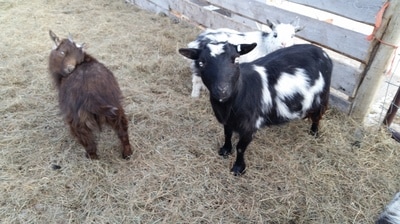
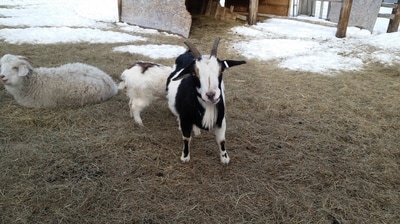
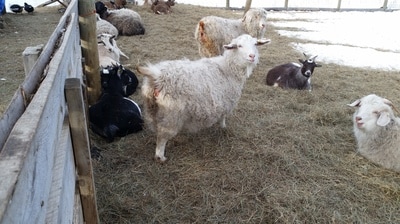
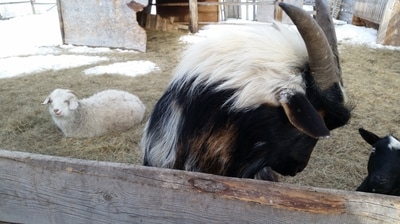
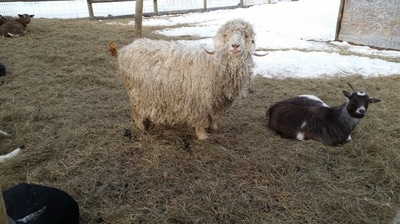
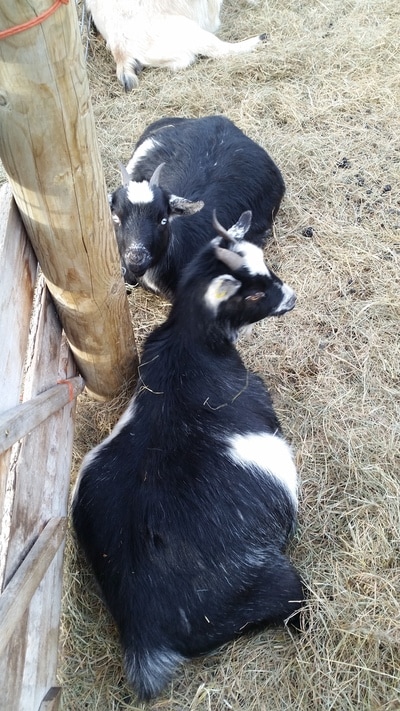
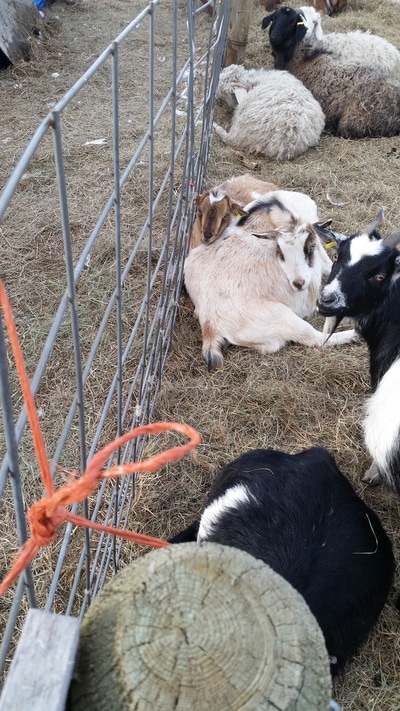
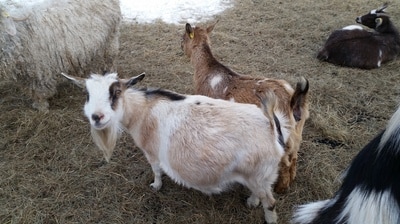
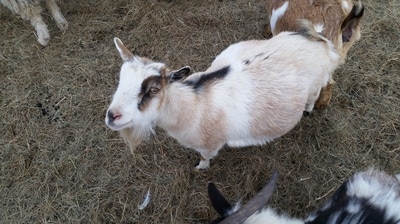
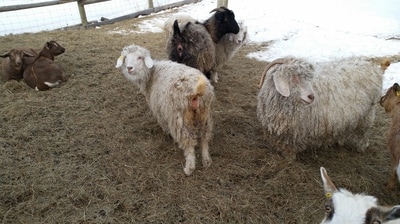
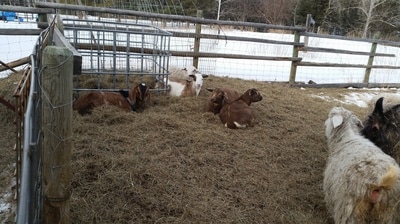
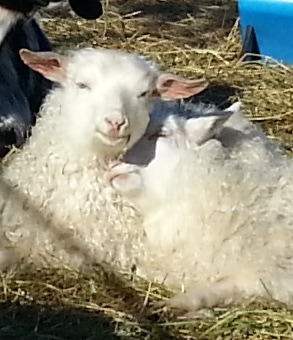
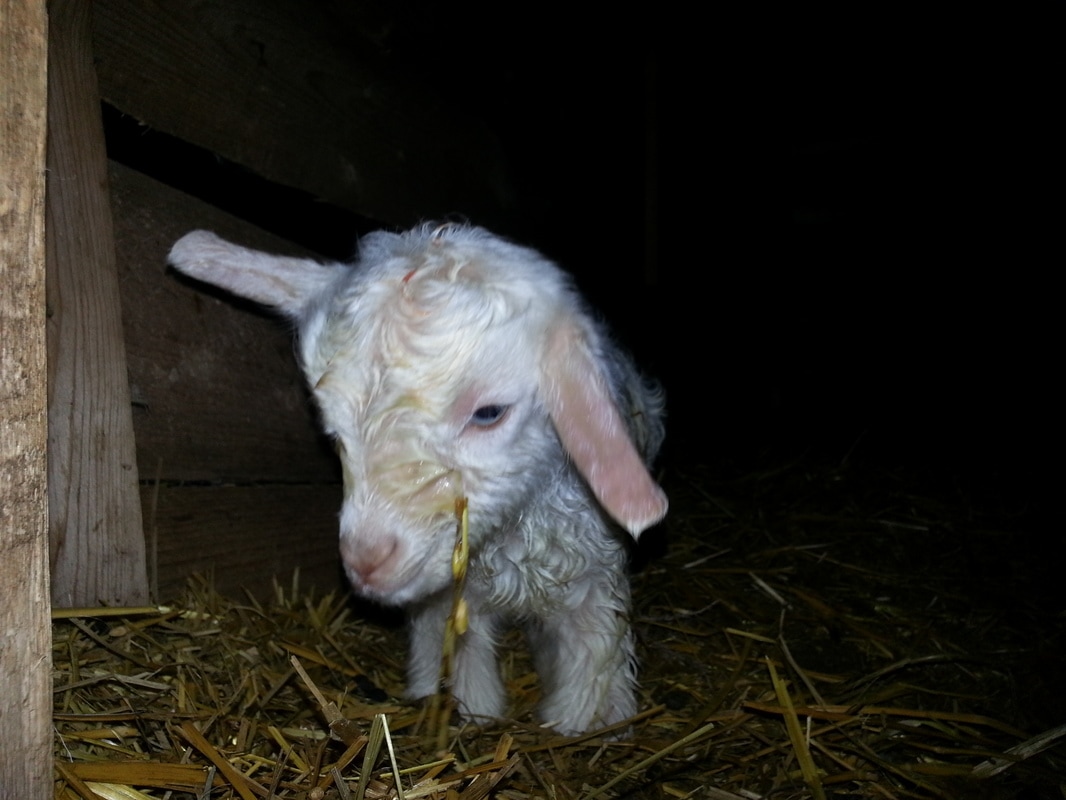
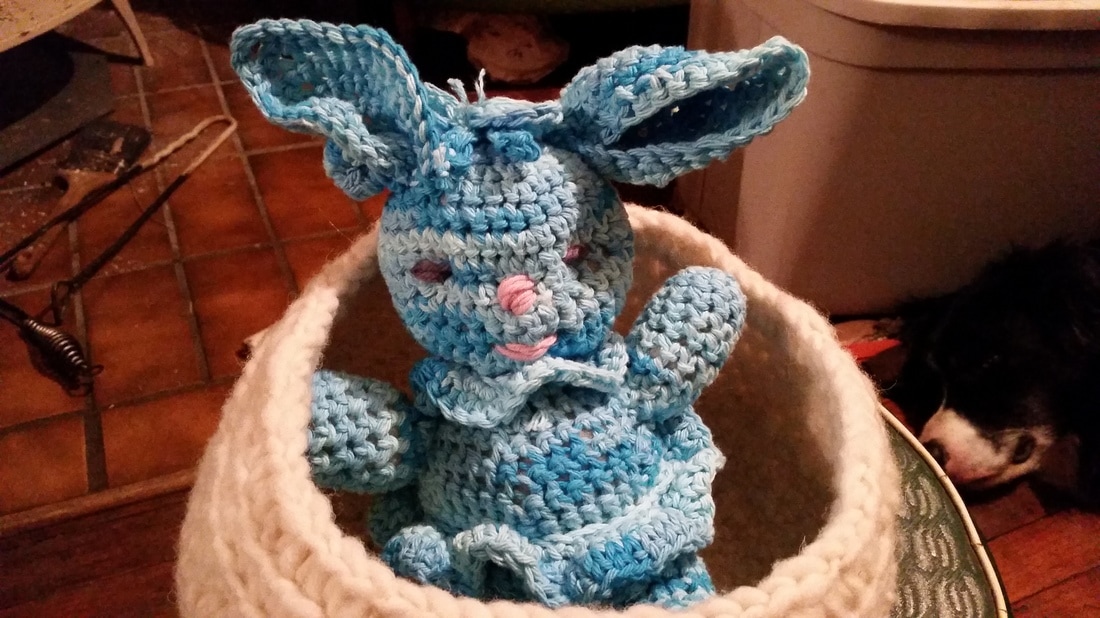
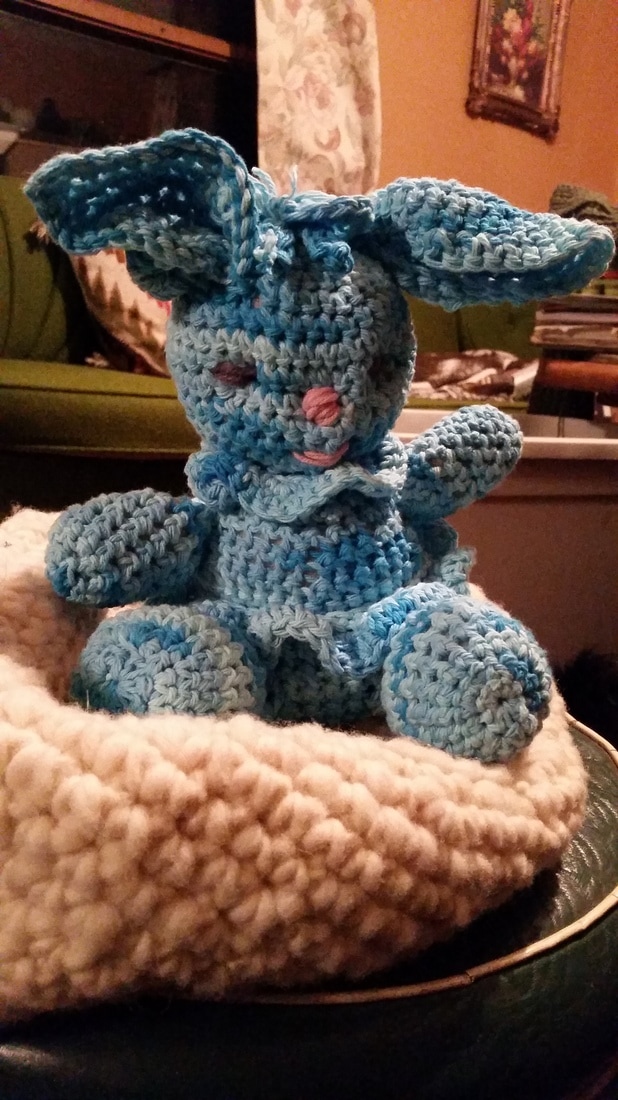
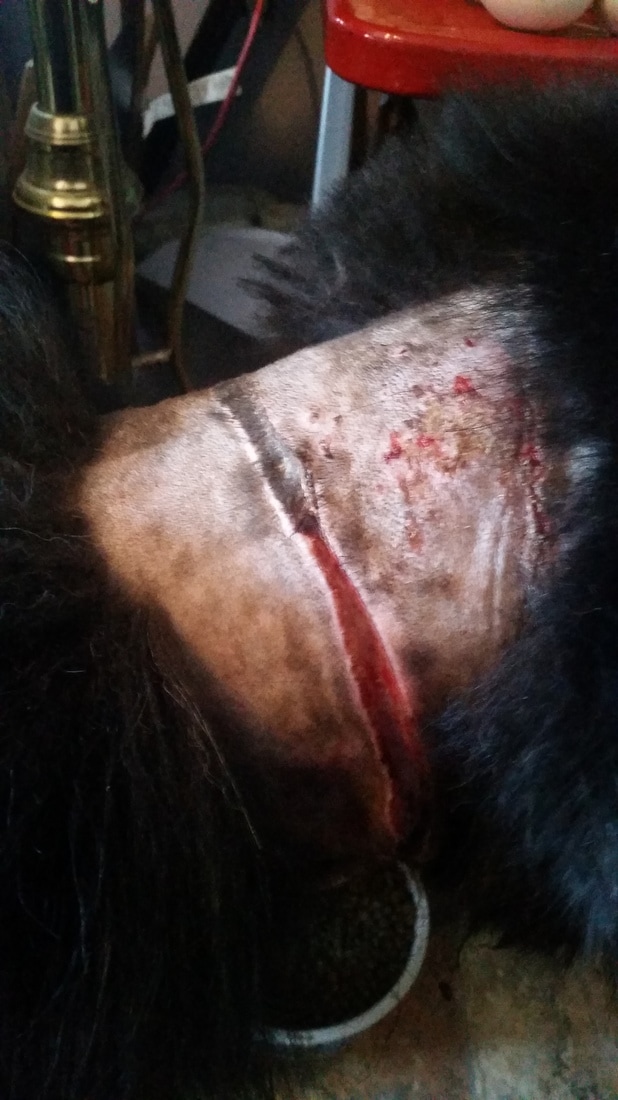
 RSS Feed
RSS Feed